Septic Tank Cleaning Frequency: Avoid Costly Repairs
Septic tank cleaning frequency: Learn how often to maintain your system, factors affecting cleaning intervals, and tips for wastewater management.
Understanding how often you should clean your septic tank is essential for maintaining a healthy and efficient wastewater management system. Neglecting regular septic tank maintenance can lead to costly repairs and unpleasant issues.
In this article, we’ll provide clear answers and practical advice on septic tank cleaning frequency to help you keep your system running smoothly.
Table of Contents
Key Takeaways
- Regular cleaning of your septic tank is crucial to avoid overflow and backups.
- Cleaning frequency depends on factors like household size, tank size, and water usage.
- Proper maintenance extends the lifespan of your septic system and prevents costly repairs.
Why Regular Septic Tank Cleaning Frequency Is Important
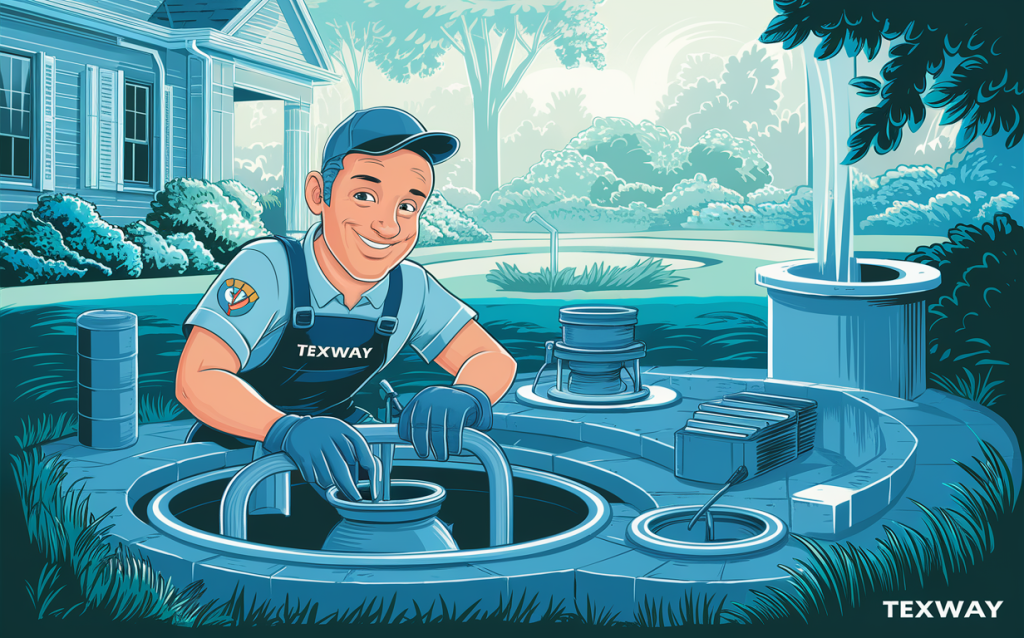
Septic tanks separate solid waste from wastewater, allowing the wastewater to be treated naturally in the drain field. Over time, solid waste accumulates in the tank, and if not removed regularly, it can cause clogs, backups, and system failures.
Factors Affecting Septic Tank Cleaning Frequency
Several factors influence how often you need to clean your septic tank:
- Household size: More occupants mean more wastewater and solid waste.
- Tank size: Larger tanks can hold more waste and may require less frequent cleaning.
- Water usage: High water usage can fill up the tank faster.
- Garbage disposal use: Using a garbage disposal can increase the amount of solid waste in the tank.
General Guidelines for Septic Tank Cleaning Frequency
While the specifics can vary, a general rule of thumb is to clean your septic tank every 3 to 5 years. However, these intervals can change based on the factors mentioned above.

Understanding Your Septic System
A septic system comprises the septic tank, drain field, and soil. It treats wastewater from your home and returns it to the groundwater. Here’s a brief overview of how it works:
- Wastewater flows from your house into the septic tank.
- Solids settle at the bottom of the tank, while oils and grease float to the top.
- The middle layer of liquid wastewater exits the tank and flows into the drain field.
- The soil in the drain field treats and disperses the wastewater.
How to Determine When Your Septic Tank Is Full
Knowing when your septic tank is full can help you schedule cleaning before problems arise. Signs that your tank may be full include:
- Slow drains: If your sinks, toilets, or showers drain slowly, it could be a sign of a full tank.
- Gurgling sounds: Unusual gurgling noises from your plumbing can indicate a full tank.
- Sewage backups: If wastewater is backing up into your home, your tank may be full.
- Lush patches in your yard: A particularly green and lush area over your drain field can indicate excessive liquid waste.
How to Monitor Septic Tank Levels
Regular inspections can help you keep track of your septic tank levels. You can either hire a professional or use a measuring stick (sludge judge) to check the sludge and scum levels in your tank.
Household Factors Influencing Cleaning Frequency
The size of your household and its habits directly impact how often you should clean your septic tank.
Household Size and Water Usage
- Small households (1-2 people): Septic tanks in smaller households might need cleaning every 5 years.
- Medium households (3-4 people): A cleaning interval of around 3-4 years is typical.
- Large households (5+ people): Larger families should consider cleaning their tanks every 2-3 years to prevent problems.
Impact of Garbage Disposals
Using a garbage disposal can double the amount of solid waste entering your septic tank. If you use a garbage disposal, you may need to clean your tank more frequently.
Cost of Septic Tank Cleaning

The cost of cleaning a septic tank can vary based on location, tank size, and the complexity of the job. On average, homeowners can expect to pay between $250 and $500 for a professional cleaning.
Septic Tank Cleaning Cost Breakdown
| Service | Average Cost |
|---|---|
| Basic pump-out | $250 – $400 |
| Inspection and cleaning | $300 – $500 |
| Additional repairs | Varies based on damage |
Regular maintenance can help you avoid higher costs associated with emergency repairs and system replacements.
Benefits of Regular Septic Tank Cleaning
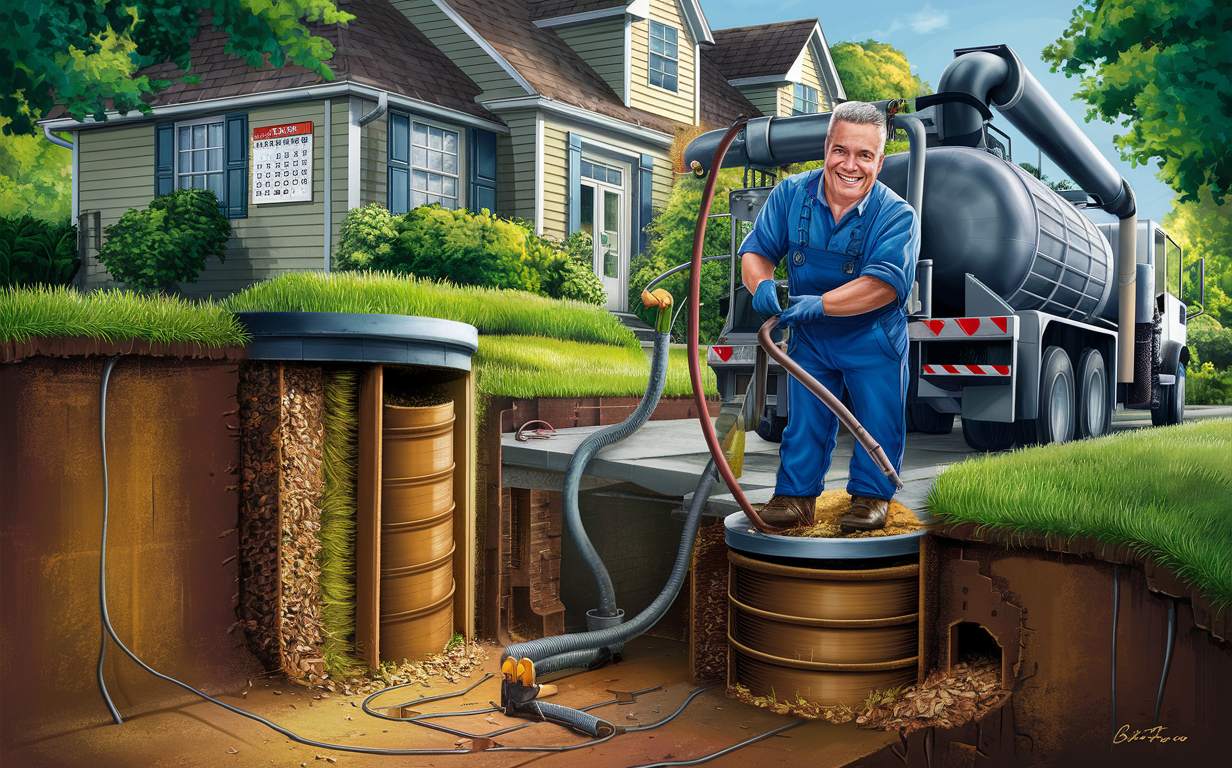
Regular septic tank cleaning offers several benefits:
- Prevents system failures: Regular cleaning reduces the risk of backups and overflows.
- Extends system lifespan: Proper maintenance can extend the life of your septic system.
- Saves money: Preventive maintenance is often less expensive than emergency repairs.
- Protects the environment: Proper waste management prevents groundwater contamination.
DIY Septic Tank Maintenance Tips
While professional cleaning is essential, you can take steps to maintain your septic system between cleanings:
Regular Inspections
Inspect your septic tank and drain field regularly to catch any issues early. Look for signs of leaks, backups, or unusual growth in your yard.
Water Conservation
Conserving water reduces the load on your septic system. Consider installing water-saving fixtures and fixing leaks promptly.
Responsible Waste Disposal
Avoid flushing non-biodegradable items or harsh chemicals down the drain. These can damage your septic system and disrupt the natural bacterial balance.
Common Septic Tank Problems and Solutions
Even with regular cleaning and maintenance, septic tanks can encounter issues. Here are some common problems and their solutions:
Clogs and Backups
- Problem: Solids build up and block the outlet pipe.
- Solution: Regular cleaning can prevent clogs; if you experience a backup, hire a professional to clear the blockage.
Leaks
- Problem: Cracks in the tank or pipes can allow wastewater to leak.
- Solution: Inspect your system for leaks and repair any damage promptly.
Drain Field Failure
- Problem: The drain field can become saturated or clogged over time.
- Solution: Ensure regular maintenance and avoid overloading the system with excessive wastewater.
Environmental Impact of Septic Systems
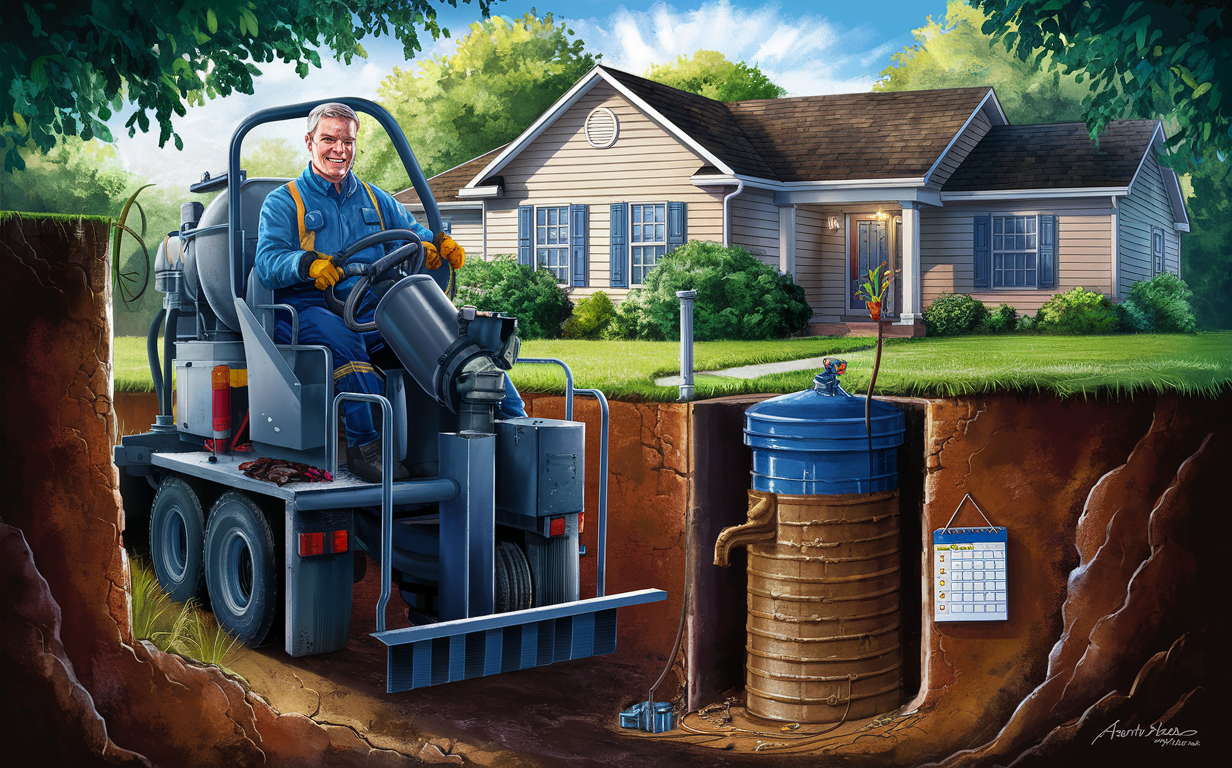
Properly maintained septic systems are essential for protecting the environment. They treat wastewater and prevent contaminants from entering the groundwater. Neglecting maintenance can lead to environmental hazards, including water pollution.
How Septic Systems Treat Wastewater
Septic systems use natural processes to treat wastewater:
- Separation: Solids settle in the tank, and liquids flow to the drain field.
- Filtration: The soil in the drain field filters and treats the wastewater.
- Biodegradation: Microorganisms in the soil break down organic matter.
Regular cleaning ensures these processes work efficiently and protect the environment.
Preventive Measures for Septic System Health
Taking preventive measures can help maintain a healthy septic system:
- Regular Pumping: Clean your tank every 3-5 years.
- Water Conservation: Reduce water usage to prevent overloading the system.
- Proper Waste Disposal: Avoid flushing non-biodegradable items.
- Routine Inspections: Regularly inspect your system for signs of trouble.
Professional Septic Tank Services
Hiring a professional for septic tank cleaning and maintenance ensures your system is properly cared for. Professionals have the tools and expertise to handle complex issues and keep your system running efficiently.
Choosing a Septic Tank Service Provider
When selecting a septic tank service provider, consider the following:
- Experience: Look for a company with years of experience in the industry.
- Licensing and Insurance: Ensure the provider is licensed and insured.
- Reviews: Check customer reviews and testimonials.
- Services Offered: Choose a provider that offers a range of services, including inspections, repairs, and maintenance.
Septic Tank Cleaning Frequency Table
Understanding how often to clean your septic tank based on specific factors can help you plan maintenance effectively.
| Household Size | Tank Size (gallons) | Cleaning Frequency (years) |
|---|---|---|
| 1-2 people | 1,000 | Every 4-5 years |
| 3-4 people | 1,000 | Every 3-4 years |
| 5+ people | 1,000 | Every 2-3 years |
| 1-2 people | 1,500 | Every 5-7 years |
| 3-4 people | 1,500 | Every 4-5 years |
| 5+ people | 1,500 | Every 3-4 years |
Final Thoughts
Regular septic tank cleaning is essential for maintaining your wastewater management system. By understanding the factors that influence cleaning frequency and taking preventive measures, you can keep your septic system running efficiently and avoid costly repairs.
Remember to schedule professional inspections and cleanings to ensure the longevity of your system. If you have any concerns or need assistance with your septic system, don’t hesitate to contact a professional service provider. For more information, you can visit our website or contact us.






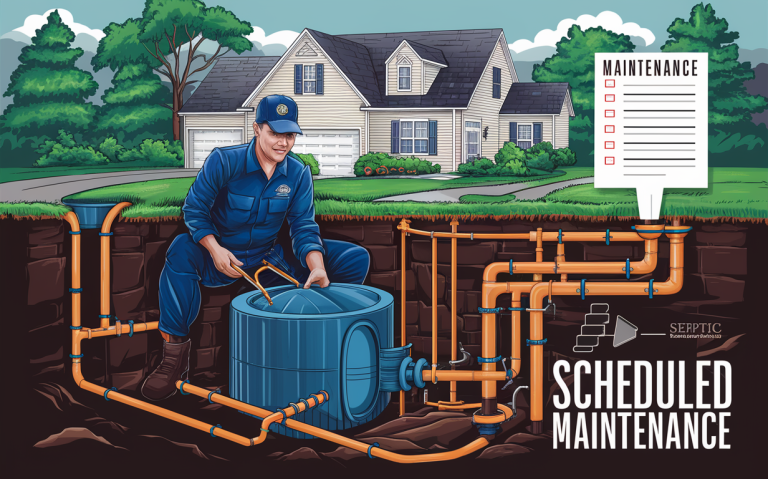
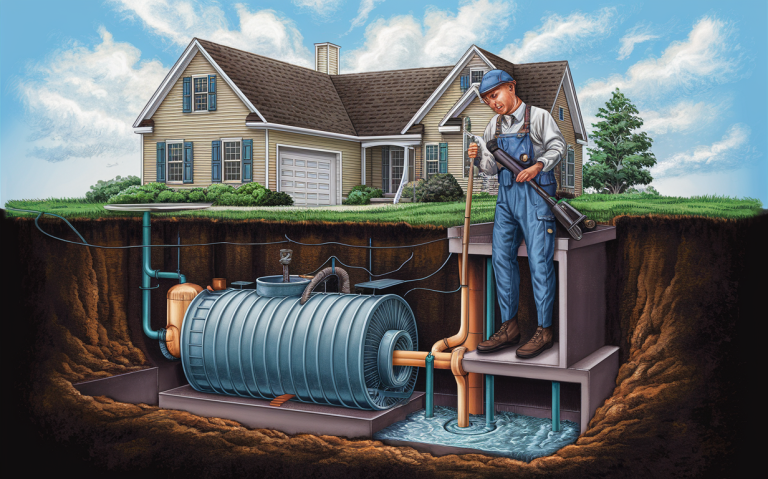
 Texway Wastewater Services is a septic, wastewater, and excavation company based out of Burleson, Texas and serving the surrounding areas. We specialize in
Texway Wastewater Services is a septic, wastewater, and excavation company based out of Burleson, Texas and serving the surrounding areas. We specialize in